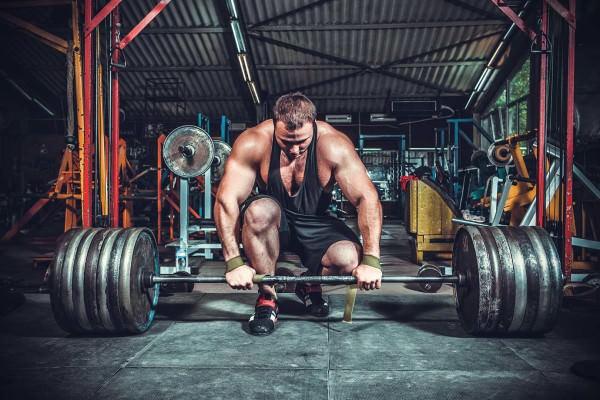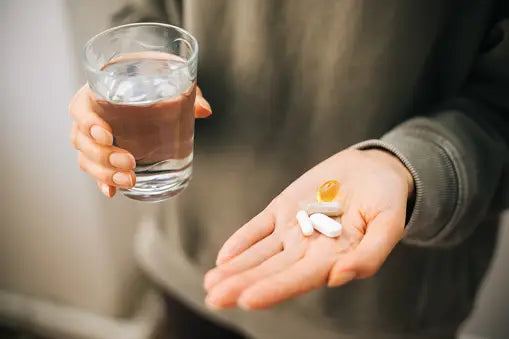

Creatine and Magnesium: Ultimate Strength Stack
Table of Contents
Creatine has become the mostly widely researched ergogenic aid to date and the research is overwhelmingly clear that creatine not only increases muscle strength but now creatine does what no other supplement can do…creatine lowers myostatin.
In a study in the Journal of Molecular and Cellular Endocrinology, researchers examined how creatine impacted myostatin levels in resistance-trained men. In a double-blind design, 27 healthy male subjects were assigned to resistance training and creatine supplementation groups. Amazingly, the study found that creatine supplementation added to a resistance-training program amplifies the training-induced decrease in serum levels of myostatin, increasing the effects of exercise on muscle strength and mass3. Other studies have reported that ingestion of creatine enhances muscle IGF-1 responses as well in conjunction with increasing satellite cell activation4.
Creatine has been found to result in increase in muscle mass and strength in young adults. Some of the possible physiological causes of the causes in strength and muscle mass are: increases in high-energy phosphate metabolism, satellite cell activity, cellular hydration status, hormonal adaptations (i.e., insulin-like growth factor 1, and muscle protein kinetics). One of the biggest debates among researchers is the recommendation of how much creatine to use for maximal increases in strength and size and the frequency (i.e. one or many times a day).
Researchers from Canada gave two different dosages of creatine to athletes: A larger dose of creatine over a shorter time (12 grams over 2 weeks) or a smaller does over a greater time period (8 grams over 3 weeks). The subjects were assigned to a resistance training protocol for duration of the protocol. The researchers found that both the larger and smaller doses of creatine resulted in similar increases in size and strength compared to the placebo group. Additionally, the groups taking creatine before and after exercise resulted in increased muscle mass. The researchers concluded for optimal gains in muscle mass and size, athletes looking to get the best gains should use creatine both before and after exercise.
The study confirms what was found in a previous study conducted by the same group in older adults that creatine both before and after exercise results in greater increases in muscle mass in older adults compared to a placebo. The researchers concluded that athletes looking to get the most gains in size and strength should include 4-6 grams of creatine before and 4-6 grams of creatine after exercise.
 Magnesium is a key mineral in human metabolism, its necessary for more than 300 chemical reactions in the human body. Every organ in the body — especially the heart, muscles, and kidneys — needs the mineral magnesium. Many Americans do not get enough magnesium, according to the National Institutes of Health. This is especially important because, an estimated 80 percent of Americans are deficient in it. The health consequences of deficiency can be quite significant, and can be aggravated by many, if not most, drug treatments. Magnesium is a crucially important mineral for optimal health, performing a wide array of biological functions, including but not limited to: Magnesium is a key mineral in human metabolism, its necessary for more than 300 chemical reactions in the human body. Every organ in the body — especially the heart, muscles, and kidneys — needs the mineral magnesium. Many Americans do not get enough magnesium, according to the National Institutes of Health. This is especially important because, an estimated 80 percent of Americans are deficient in it. The health consequences of deficiency can be quite significant, and can be aggravated by many, if not most, drug treatments. Magnesium is a crucially important mineral for optimal health, performing a wide array of biological functions, including but not limited to: |
- Activating muscles and nerves
- Creating energy in your body by activating adenosine triphosphate (ATP)
- Helping digest proteins, carbohydrates, and fats
- It’s also a precursor for neurotransmitters like serotonin
Magnesium is not only necessary for overall health but also for increased strength. Researchers investigated the effects of dietary magnesium (Mg) on strength development during a double blind, 7-week strength training program in 26 untrained subjects, 18-30 years old. Subjects’ 3-day diet records were analyzed and Mg content was calculated. Control received a placebo and Magnesium oxide supplementation to bring Mg intake, including diet, to 8-mg/kg-body weight/day. Body composition was assessed with bioelectrical impedance. Pre and post quadriceps strength was also analyzed. Each subject performed three sets of 10 reps, leg press and leg extension, three times/week. At the end of the study, both groups gained strength, however, results indicated a significant increase for the Magnesium group compared to the Control group in absolute strength.
Magnesium is also necessary for energy metabolism and physical performance and new research shows that taking it increases testosterone levels. A 2011 study tested a group of sedentary men who received 10 mg of magnesium per kilogram of body weight a day (Group 1), a group of male tae kwon do athletes taking the same magnesium protocol daily (Group 2), and a group of tae kwon do athletes who did not take magnesium (Group 3). Group 2 had the greatest increases in testosterone levels after tae kwon do practice, followed by Group 3, while Group 1 had the lowest levels (no practice or exercise), indicating that magnesium supplementation raises testosterone levels when combined with exercise. Scientists think this increase in testosterone has a performance-enhancing effect.
A combination of both creatine and magnesium can enhance not only overall health, but the combination can enhance strength and testosterone levels. One may consider a supplement like Infinite Labs Creatine MP. Creatine MagnaPower®, or magnesium creatine chelate, is a patented version of creatine molecularly bonded to magnesium to promote the synthesis and regeneration of ATP.
Saremi A, Gharakhanloo R, Sharghi S, Gharaati MR, Larijani B, Omidfar K. Effects of oral creatine and resistance training on serum myostatin and GASP-1. Mol Cell Endocrinol, 2009 Dec 22.
Deldicque L, Louis M, Theisen D, Nielens H, Dehoux M, Thissen JP, Rennie MJ, Francaux M. Increased IGF mRNA in human skeletal muscle after creatine supplementation. Med Sci Sports Exerc, 2005 May;37(5):731.
Brilla LR, Haley TF. Effect of magnesium supplementation on strength training in humans. J Am Coll Nutr. 1992 Jun;11(3):326-9.
Candow DG, Chilibeck PD, Burke DG, Mueller KD, Lewis JD. Effect of different frequencies of creatine supplementation on muscle size and strength in young adults. J Strength Cond Res. 2011 Jul;25(7):1831-8.
Cinar, V., Polat, Y., Balaci, A., Mogulkoc, R. Effects of Magnesium Supplementation on Testosterone Levels of Athletes and Sedentary Subjects at Rest and after Exhaustion. Biological Trace Element Research. 2011. 140, 18-23.


















